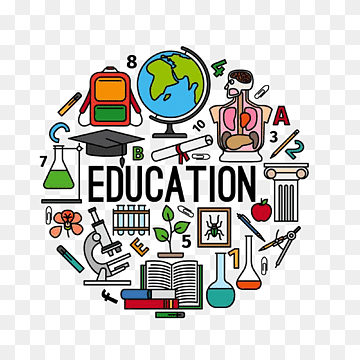Introduction: In today’s fast-paced and ever-evolving world, the importance of education extends far beyond the classroom walls. While traditional education provides a foundation of knowledge and skills, lifelong learning is essential for personal growth, professional development, and staying relevant in a rapidly changing job market. In this article, we’ll explore the transformative power of lifelong learning and why education shouldn’t stop at graduation.

- Adaptability in a Changing World: The world is constantly changing, driven by advancements in technology, shifts in the global economy, and evolving societal trends. Lifelong learning is key to staying adaptable in this dynamic environment. By continually acquiring new knowledge and skills, individuals can adapt to changing circumstances, seize new opportunities, and navigate transitions in their personal and professional lives with confidence.
- Career Advancement and Skill Enhancement: In today’s knowledge-based economy, skills have become the currency of the workforce. Employers are increasingly seeking candidates who possess a diverse set of skills and a willingness to learn and adapt. Lifelong learning allows individuals to stay competitive in the job market by acquiring new skills, expanding their expertise, and staying abreast of industry trends. Whether through formal education programs, online courses, workshops, or self-directed learning, ongoing education can open doors to new career opportunities and enhance earning potential.
- Personal Enrichment and Intellectual Growth: Education is not only about acquiring practical skills; it’s also about enriching the mind and nourishing the soul. Lifelong learning provides opportunities for intellectual growth, personal enrichment, and self-discovery. Whether exploring new subjects, delving into the arts and humanities, or engaging in creative pursuits, education enriches our lives and expands our horizons. It fosters curiosity, critical thinking, and a deeper understanding of the world around us, ultimately leading to greater fulfillment and a richer life experience.
- Fostering Innovation and Creativity: Lifelong learning fuels innovation and drives progress in society. By encouraging a culture of curiosity, experimentation, and continuous learning, individuals can unlock their creative potential and contribute to positive change in their communities and beyond. Lifelong learners are more likely to think outside the box, challenge conventional wisdom, and embrace new ideas, leading to breakthrough innovations and advancements in science, technology, business, and the arts.
- Building Resilience and Lifelong Well-being: Education is a powerful tool for building resilience and promoting lifelong well-being. Lifelong learners are better equipped to navigate life’s challenges, adapt to adversity, and bounce back from setbacks. Education provides a sense of purpose, meaning, and fulfillment, fostering mental and emotional resilience in the face of uncertainty. Moreover, lifelong learning has been linked to improved cognitive function, better mental health outcomes, and a higher overall quality of life.
Conclusion: In today’s knowledge-driven society, the journey of learning never truly ends. Lifelong learning is essential for personal growth, professional development, and societal progress. By embracing education as a lifelong pursuit, individuals can adapt to change, advance their careers, enrich their lives, foster innovation, and build resilience. So, let’s embrace the transformative power of lifelong learning and continue our journey of education beyond graduation.
